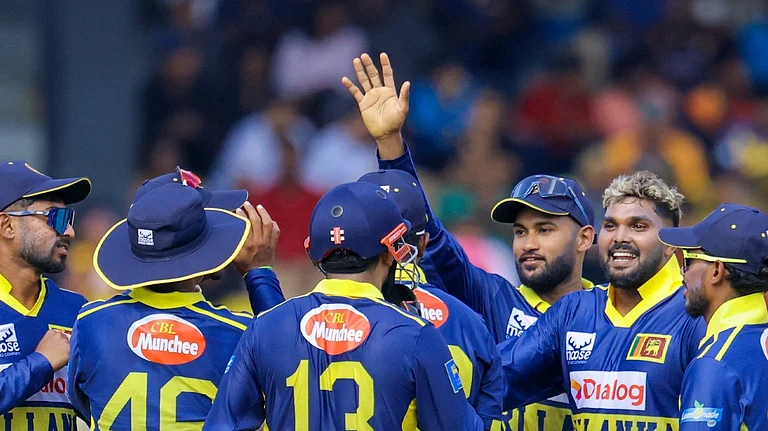ELECTIONS are usually a bonanza for a lot of small-scale industries which thrive on the big money that can be earned through election-related orders. Not this time. With the Election Commission putting a noose around pollspend this year, these units are in dire straits, especially after investing large amounts to tackle the election workload.
Printers and propaganda material-makers have been hit the hardest because of the Election Commission's diktat as candidates, in their quest to curtail expenditure and stay within the specified limits, cancelled orders for posters, handbills and banners en masse.
For most printers, elections are festivals which come once in five years and give them enough profits to last five years. Anticipating a surge in business, many printers had placed orders and bought extra paper and contracted other smaller printers to share the workload. Says a printer in Delhi, who doubled his paper order anticipating large printing contracts for the elections: "Hamaare pet mein laatmaari jaa rahi hai (Our livelihood is under threat). It will take us a long time to square the losses."
Says Balbir Singh of Delhi's Karol Bagh-based Laily Printers: "We have been involved in election-related printing for the last 40 years and we have never been so hard up." His company specialises in printing large posters, handbills, stickers, voter slips and so on. "This year, we have printed nothing but a few handbills," he says. He had also placed orders for extra paper in the wholesale market and was forced to cancel his orders. "We had to take a size-able loss as the price of paper in the wholesale market went up by Rs 40 to Rs 50, per ream, because of the elections."
His partner, Amarjeet Singh, says that during the last elections, they had printed over 20 lakh posters for Chandra Shekhar, Devi Lal, Sukhbans Kaur and the late Beant Singh, but this year the order was for less than 10,000. Initially, they did get large orders but, after the Commission clamped down on election spending, the candidates rushed to cancel them. Those who have reportedly cancelled their orders include Kapil Sibal, Rajesh Khanna, Vasant Sathe and Harish Rawat. The current orders, he says, are from Manoj Prabhakar of Congress (T), Haroun Yusuf and Sukhbans Kaur of Congress but the size of their orders are minimal.
"Hamaare to lale pare hain (We are in dire straits)," says Ajay Gulati of Gulati Offset, specialists in election posters. Without orders, his machines are at a standstill. And the going is really bad as Gulati had sub-contracted two other small-time printers to take on the extra orders. "We had to pay the small printers from our own pockets as there was no business," he says, pointing out that he is even thinking of changing his line of business now. "Yeh to hamaari Diwali hoti hai, par Seshan ki daya se, is saal woh kaali ho gayi (Elections are usually like Diwali for us, but thanks to Seshan, it's all dark this time)," he says.
The situation in Sadar Bazaar—Delhi's wholesale hub—is no better. Otherwise characterised by the busy 'election bazaar', there is an uneasy calm with very little business being contracted here. Says Ashok Kumar, a wholesaler of banners, badges, caps and flags:
"I have invested Rs 2 lakh to buy this stock, mostly from loans. I had not expected this at all. We arranged for the stock six months in advance when there was no sign of the hawala scam, the Supreme Court strictures and Seshan's toughness. Now the candidates are not prepared to buy goods worth even Rs 100. Our volume of trade has become very low...we are not selling goods worth more than Rs 1,000 a day."
Says Ram Kishore, who owns one of the largest shops selling similar goods in Sadar: "We sold a lot during the last municipal elections in Uttar Pradesh. Earlier, party workers would come and pick up stuff to the tune of Rs 2.5 lakh without batting an eyelid. Now they never pick up stuff more than Rs 1,000." According to Ashok Sethi, who calls himself a seasonal worker whose wares change with the occasion and who had put in his own money to buy his election stock: "Even if I sell my wife's jewels, I will not be able to recover the money. I do not know if I will do this in the next elections." He has some solace though: "The only person who is buying in some bulk is Tau (Devi Lal). Sirf unka danda chalta hai (Only his power prevails)."
And these are not isolated cases. Most of the traders who plunged into election-related business blame Seshan for their ills. In Sadar alone, there are over 50 shops whose owners have invested over Rs 2 lakh in election material and who are finding it difficult to make ends meet. It is true that Seshan's directives have been largly successful in bringing some order to the election process, but clearly, they have also brought much disorder into the carefully-crafted plans of small businessmen who simply hadn't bargained for the changes in the political system. And (dare we say?) robbed the whole election business of some colour.


























